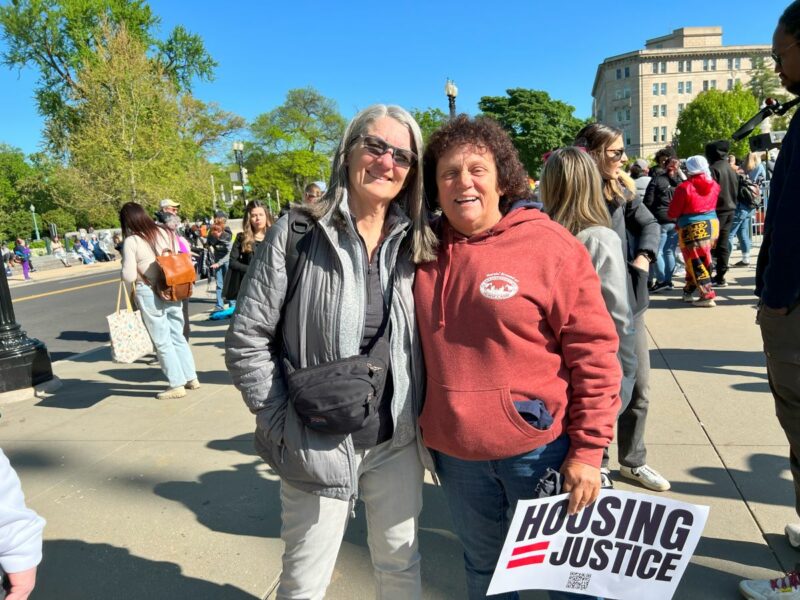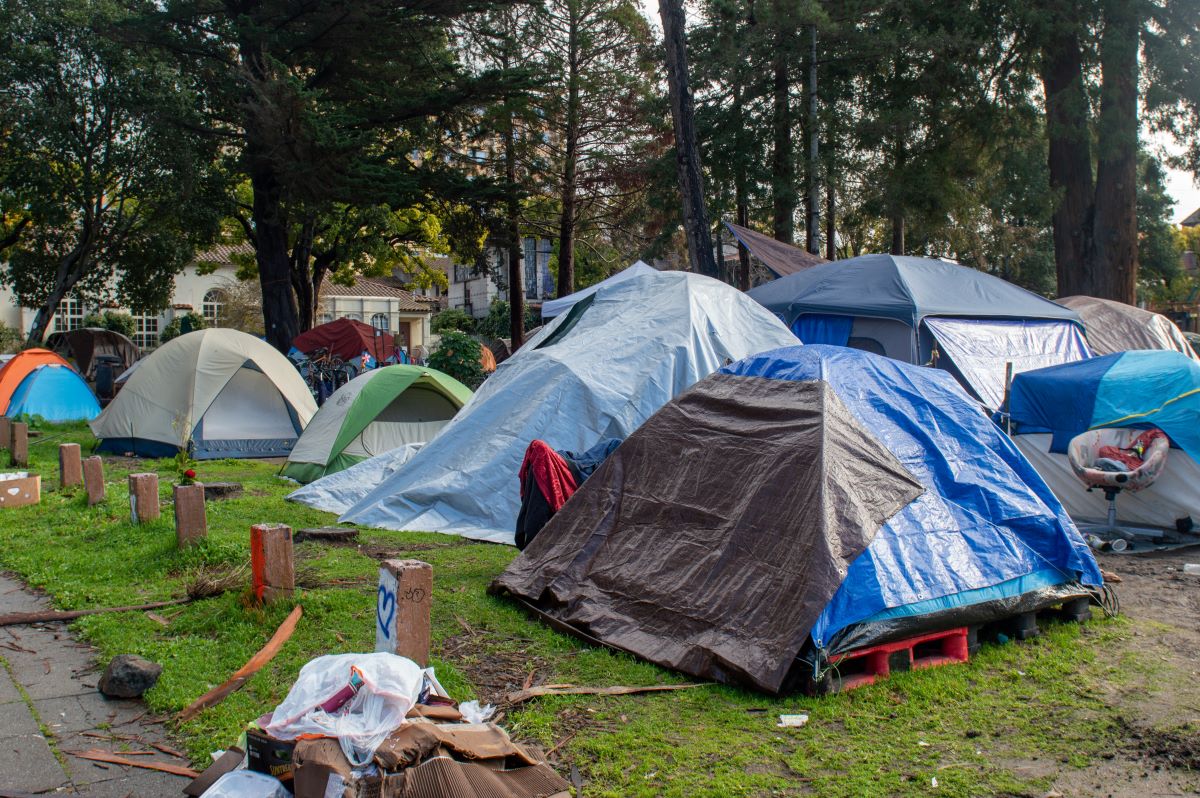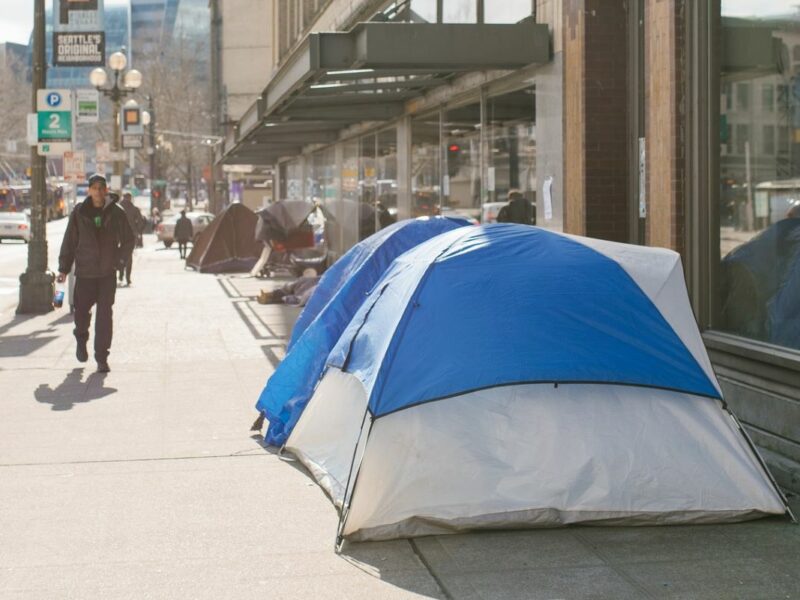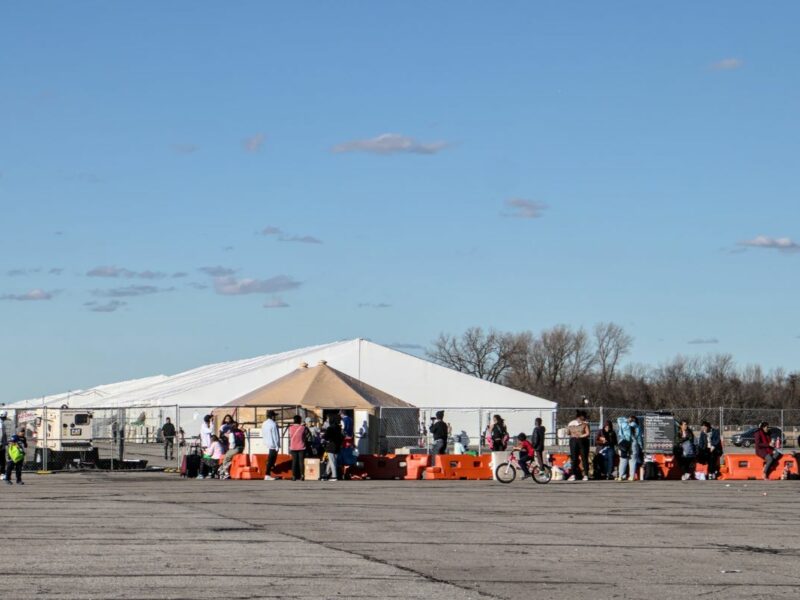A Subtle Shift in This Question About Homelessness Can Lead Us to Much Better Answers
There are many myths about homelessness that people who have always been housed mindlessly repeat to make themselves feel better. Still, perhaps none is so pervasive as the myth that “homelessness could never happen to me.”
The question “Why are you homeless?” ties into this myth because people often want to hear about an individual’s specific circumstances so that they can dissect it and find a way to blame everything on that person. At the same time, they can soothe themselves because they would never make the same mistakes and are therefore immune to homelessness.
But ultimately, “Why are you homeless?” is the wrong question. Instead of zeroing in on an individual’s circumstances and trying to overgeneralize it, we should zoom out and ask, “Why are so many people homeless?”
A Quick Defense of ‘Why Are You Homeless?’
In certain situations, “Why are you homeless?” can be helpful. When asked with genuine curiosity and answered by many different people, trends that point to specific areas where systemic change is needed can start to emerge. Other times, it offers the answerer a much-needed outlet to tell their story without judgment.
Neither of these situations is what I’m talking about in this article.
I’m talking about situations where “Why are you homeless?” is a thinly veiled stand-in for “What have you done to deserve this?” The asker isn’t looking for any insight to direct their advocacy; they just want to satisfy their curiosity and feel superior.
Vulnerable People Become Homeless First
One of the flaws of the “Why are you homeless?” question is that it can provide an inaccurate picture if you don’t think critically about the data.
You may see, for example, that people with mental or physical disabilities or people who use substances are overrepresented in homeless populations. This can also be true for people who have experienced many adverse childhood experiences or other traumatic experiences later in life.
Marginalized groups like Black and Indigenous people are also at greater risk due to the compounding effects of racism on their lives. Many different risk factors can make a person more vulnerable to homelessness, but that doesn’t answer the question of why homelessness exists in the first place.
At this stage, it may seem like “only” people with individual vulnerabilities become homeless. I want to say unequivocally that all people deserve housing, and any number of unhoused people is too many.
But stopping your analysis there obscures the fact that people with multiple vulnerabilities like these are the canaries in the coal mine of a much larger crisis. It’s not that homelessness only affects those who are already poor, vulnerable, and under-resourced. It’s that it affects them first.
When we accept that bad things happen to certain people, we can’t summon the will to care about because of x, y, or z arbitrary reasons like they use drugs, they’ve been to prison, or they have mental health challenges that we don’t understand- not only are we turning the cogs of the human suffering machine without resistance, but we’re also hastening our own descent into the same pit.
Not fighting homelessness when it was threatening people you didn’t care about has only made it stronger when it comes for the people you do.
Why Are So Many People Homeless?
The forces in play that are pushing so many people into homelessness are systemic. That means they’re beyond the scope of any individual, so pinpointing where any given unhoused person “went wrong” is a useless effort. You don’t have to make any mistakes to fall victim to unaffordable housing or extreme income inequality and end up without stable housing.
What safety nets we do have in America are so full of gaping holes that it seems, at times, more people fall through than are actually helped. In fact, only one out of every four households that qualify for rental subsidies actually end up receiving them. Employment is also tenuous, wages are low, and unemployment benefits are both insufficient and time limited.
All of these factors together mean that more and more people are finding themselves homeless, and it’s happening to people with fewer risk factors than we’re used to seeing. Homelessness is “moving up” the socioeconomic ladder as the gaps between the very rich and the very poor become ever wider.
A Fresh Reason to Care
If you’ve found it difficult to connect emotionally with homeless advocacy in the past, let this be a fresh reason to inspire some urgency: homelessness is coming quickly to a tax bracket near you.
As housing becomes more and more expensive and incomes stay the same, the bar for maintaining stable housing will become harder and harder to clear. That means that the salary you were once able to support your family on comfortably won’t go nearly as far, and it’s only a matter of time before you’re pushed out of housing entirely. This is the trajectory that corporate interests will push us in if we don’t stop them with legislation or otherwise.
If the thought of homelessness happening to you and your family is what it takes to make it tangible and light a fire under you, welcome to the fight. We need all kinds to pitch in; just never forget those fighting longer than you because they had no choice. It may need to be personal for you to have your eyes opened in the first place, but never allow yourself to be lulled back to sleep by half-measures and compromises that help you but leave others behind. We’re fighting for housing for all.
No matter who you are, what you’ve done, and what has happened in your life, you deserve housing. Housing is a human right.











